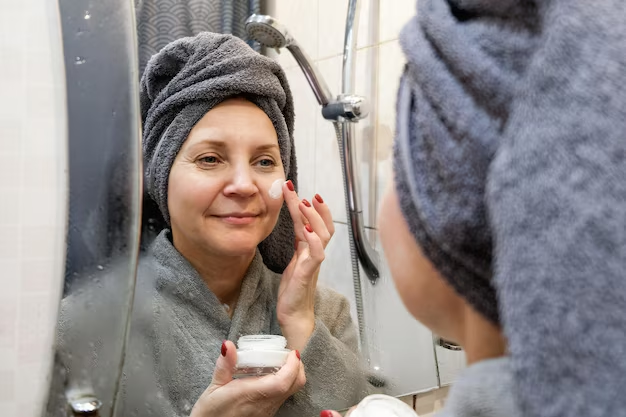Discover Effective Ways to Manage Rosacea: Your Comprehensive Guide
Living with rosacea can be an ongoing battle with fluctuating facial redness, visible blood vessels, and sometimes, frustrating bumps. Whether you've been dealing with it for years or have just noticed the onset of symptoms, understanding how to manage and treat rosacea effectively is crucial. This guide will delve into practical strategies, offering insights into various treatments and lifestyle changes that can help you achieve clearer, more comfortable skin.
Understanding Rosacea: More Than Just Redness
Rosacea is a common skin condition that primarily affects the face and often starts as flushing or redness on the cheeks. Over time, it can lead to more persistent redness and visible blood vessels. Some individuals may also experience acne-like breakouts and skin thickening. Identifying and understanding rosacea is the first step in managing it effectively.
The Importance of Early Recognition
Starting treatment early can prevent the condition from worsening. If you notice persistent redness, especially if it comes with eye irritation or a burning sensation, consider consulting a dermatologist to confirm a diagnosis and explore your options.
Lifestyle Adjustments to Consider
Before diving into medical treatments, some lifestyle changes can significantly impact the severity and frequency of rosacea flare-ups. Let's explore key modifications that are beneficial.
Identify Your Triggers
Many people with rosacea notice that their flare-ups are triggered by certain conditions. Common triggers include:
- Heat and sun exposure
- Stress and anxiety
- Spicy foods and alcohol
- Certain skincare products
Keeping a diary can help identify and manage these triggers effectively. By avoiding known triggers, you'll likely see a reduction in symptoms.
Sun Protection
Protecting your skin from the sun is paramount in managing rosacea. Here are some effective sun protection tips:
- Use a broad-spectrum sunscreen with at least SPF 30 every day.
- Wear a wide-brimmed hat and seek shade when outdoors.
- Consider UV-protective clothing for prolonged sun exposure.
Mindful Skincare Routine
Adopt a gentle skincare routine to avoid irritating your skin further. Here are some points to remember:
- Use fragrance-free and hypoallergenic products.
- Steer clear of alcohol-based products and harsh exfoliants.
- Moisturize regularly to maintain the skin's barrier.
Exploring Medical Treatments
For those seeking more directed interventions, various medical treatments can help manage rosacea symptoms. It’s important to work with a healthcare provider to tailor a treatment plan that suits your individual needs.
Topical and Oral Medications
Topical treatments such as metronidazole or azelaic acid are commonly prescribed and can reduce inflammation and redness. For more pronounced symptoms, oral antibiotics like doxycycline are sometimes recommended to control flare-ups.
Laser and Light Therapies
Laser therapy and intense pulsed light (IPL) can effectively reduce redness and visible blood vessels. These treatments target and diminish dilated blood vessels, providing longer-lasting relief.
Other Emerging Treatments
Recent advances have shown promising results with new medications targeting specific pathways involved in rosacea. Discuss these options with your dermatologist to understand the potential benefits and risks.
Dietary Considerations and Complementary Therapies
Your diet can also play a role in managing rosacea. Certain foods and beverages might need to be consumed in moderation or avoided altogether.
Foods to Watch
The following can trigger symptoms in some individuals:
- Spicy foods
- Hot drinks
- Dairy products
- Histamine-rich foods, like aged cheeses and fermented products
Experimenting with your diet by eliminating potential triggers can offer insights into how food affects your skin.
Complementary Approaches
Some individuals find relief with alternative therapies. While scientific evidence supporting these is limited, some popular options include:
- Probiotics, which can promote gut health and potentially reduce skin inflammation
- Omega-3 supplements, believed to support skin health
- Stress-reduction techniques like yoga or meditation, which can minimize stress-related flare-ups
Staying Informed and Empowered
The journey to managing rosacea effectively involves staying informed and actively participating in your care plan. Regular check-ups with a dermatologist will ensure you're on the best path forward, especially if new symptoms arise.
Building a Support Network
Connecting with others who have rosacea can be beneficial. Sharing experiences and tips can offer emotional support and practical advice.
In managing rosacea, patience and persistence are essential. By understanding your condition, making strategic lifestyle changes, and exploring various treatment options, you can significantly improve your skin’s appearance and your quality of life. Efforts to manage rosacea are a personal journey, and what works for one person might not work for another. Keep experimenting with and optimizing your approach, and remember you're not alone.
📝 Quick Summary
- 🌞 Sun Protection: Essential to prevent flare-ups.
- 💦 Gentle Skincare: Use mild, fragrance-free products.
- 📚 Know Your Triggers: Keep a diary to identify and avoid them.
- 💊 Medical Treatments: Explore topical and oral options.
- 💪 Support Network: Connect with others for shared experiences.
- 🥗 Dietary Awareness: Monitor your intake of known trigger foods.
By implementing these strategies, you can empower yourself to manage rosacea effectively and enjoy clearer, healthier skin!

